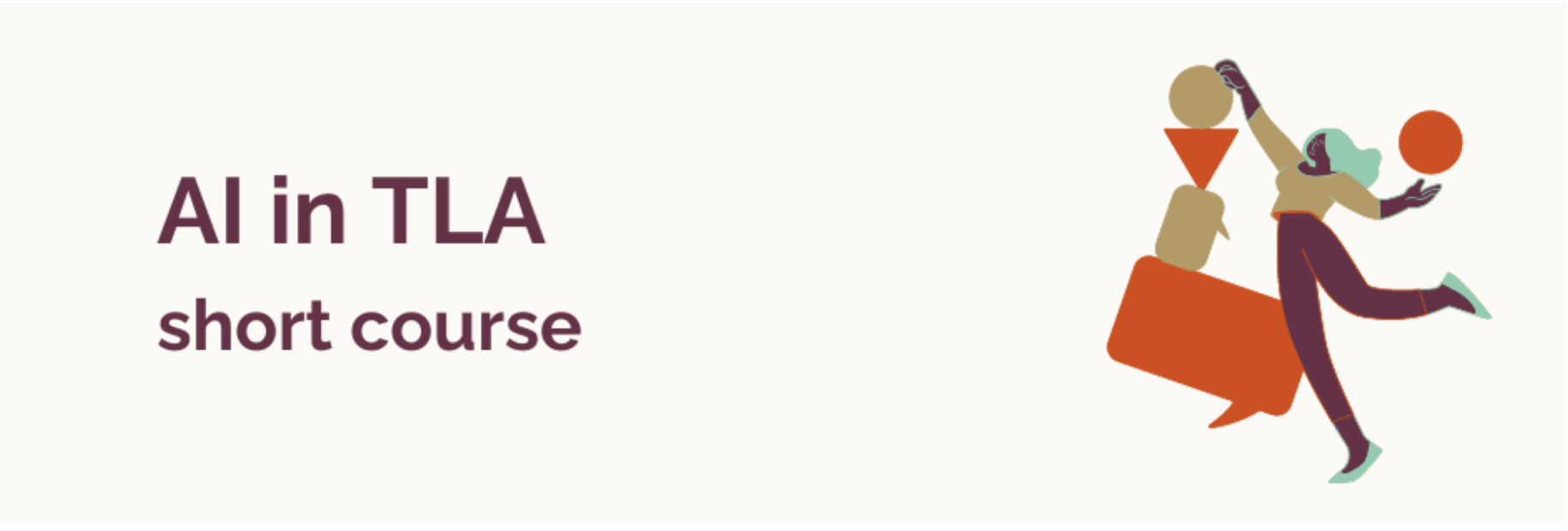Generative AI Systems in Higher Education (ChatGPT)
Page Content

AI like ChatGPT is here to stay. It will only get more powerful. Students will use it. Although there are concerns, we believe that embracing AI could present exciting opportunities to rethink and reimagine our approach to TLA at SU so that we can equip our graduates with the necessary skills to work responsibly with AI.
DLTE@SU, January 2023

Stellenbosch University is pleased to announce the launch of the StellenboschX: AI in Higher Education course series, available on edX.
As Artificial Intelligence (AI) reshapes various industries, its impact on Higher Education (HE) is undeniably significant. With the proliferation of AI tools, such as those developed by OpenAI, understanding how to navigate this rapidly advancing field is crucial for HE educators. Responses to AI within education range from caution to full acceptance and integration.
That's where this 4-course professional certificate series comes into play. Watch this video for an overview of what you can expect from the course:
Designed by Stellenbosch University's Division for Learning and Teaching Enhancement, this series is tailored for HE practitioners including teaching academics and professional academic support staff. Through this fully online offering, you'll gain insights into the evolving landscape of AI in education, learn to critically evaluate the relationship between machines and humans, and discern what is practical from mere hype.

Short Course on Generative AI in higher education teaching-learning-assessment
The short course Artificial Intelligence (AI) in teaching-learning-assessment (TLA) offers participants the opportunity to reimagine their TLA in the age of easily accessible generative AI tools. It addresses questions such as: How can we redefine our teaching role? How can we preserve the productive struggle in our learning opportunities? Are our assessment opportunities AI-resilient?
Interested in participating?
RESOURCES:
ChatGPT and AI in Higher Education Teaching-Learning-Assessment
AI like ChatGPT is here to stay. It will only get more powerful. Students will use it. Embracing AI presents exciting opportunities to rethink and reimagine TLA at SU.
What is ChatGPT?
 ChatGPT is an easy-to-use AI chatbot that can ‘read’ and ‘answer’ posed questions and prompts in natural, written language. It can also produce code, essays, poems, and stories, or solve problems in code and identify faults in calculations.
ChatGPT is an easy-to-use AI chatbot that can ‘read’ and ‘answer’ posed questions and prompts in natural, written language. It can also produce code, essays, poems, and stories, or solve problems in code and identify faults in calculations.
Why take note?
 The use of AI technologies like ChatGPT impacts TLA practices for both students and lecturers. Given that this will become a part of our students’ future careers and everyday lives, it may not be sensible to prohibit its use outright. Instead, this offers an opportunity to cultivate student responsibility by, for example, adapting TLA outcomes to call for more engagement in process-orientated formative assessments
The use of AI technologies like ChatGPT impacts TLA practices for both students and lecturers. Given that this will become a part of our students’ future careers and everyday lives, it may not be sensible to prohibit its use outright. Instead, this offers an opportunity to cultivate student responsibility by, for example, adapting TLA outcomes to call for more engagement in process-orientated formative assessments
How can we respond?
 As a leading HE institution and trusted knowledge partner, the most responsible response is to alter and adapt our TLA practices to account for the advances in AI technology and its future applications. We motivate, therefore, that there are ways of embracing AI for the future of TLA at SU.
As a leading HE institution and trusted knowledge partner, the most responsible response is to alter and adapt our TLA practices to account for the advances in AI technology and its future applications. We motivate, therefore, that there are ways of embracing AI for the future of TLA at SU.
More details
For information, please consult the ChatGPT and AI in Higher Education Teaching-Learning-Assessment discussion document.
For TLA support, please contact:
The
CLT advisors for guidance on meaningfully incorporating learning technologies in your TLA practices.
Your faculty’s
CTL advisor for rethinking TLA strategies to enhance student learning and uphold academic integrity.
Your
faculty librarian.
Discussion 1: AI in T-L-A at SU - where are we?
Webinar on AI in T-L-A on 8 March 2023
ChatGPT's implications for TLA
 Dr A van der Merwe_Presentation.pdf
Dr A van der Merwe_Presentation.pdf
What is ChatGPT?
 Prof Bruce W. Watson_Presentation.pdf
Prof Bruce W. Watson_Presentation.pdf
Discussion 2: AI in Higher Education: ChatGPT and its implications for teaching, learning and assessment.
Webinar on ChatGPT and its implications for T-L-A on 12 April 2023
AI in Higher Education webinar 2 slides
 AI webinar 2 Slides_Seminar 2_12 April 23.pdf
AI webinar 2 Slides_Seminar 2_12 April 23.pdf
Discussion 3: AI2 in Higher Education + Auxin: AI-enabled Learning
Webinar on AI-enabled learning on 23 May 2023
AI in Higher Education webinar 3 slides
 AI2 Auxin webinar 3.pdf
AI2 Auxin webinar 3.pdf
Discussion 4: AI2 and student assessment
Webinar on AI-enabled learning on 21 June 2023
AI in Higher Education webinar 4 slides
 AI2 webinar 4.pdf
AI2 webinar 4.pdf
 AI tool for assessment as learning_Sharon Malan.pdf
AI tool for assessment as learning_Sharon Malan.pdf
Discussion 5:AI2 - Values to underpin our approach to AI in HE
Webinar on values to underpin our approach to AI in HE on 18 September 2023
Podcast: Is ChatGPT and AI the end of assessment as we know it?
Podcast: Artificial Intelligence and other AI - Academic integrity in assessment
Podcast: AI in African Higher Education
SU Short Course: AI Literacy in HE TLA
An introduction to AI in Teaching-Learning-Assessment
Video created by Dr Jan Petrus Bosman, Centre for Learning Technologies
Podcast created by Dr Jan Petrus Bosman, Centre for Learning Technologies
Introduction to AI in TLA
A whole new world: Bridging the gap between critical digital pedagogies and the (new) automated virtual teaching and learning environment
Seminar presented by Dr Sonja Strydom, Centre for Learning Technologies
Much has been written about the Fourth Industrial Revolution, automation and 21st-century skills. These narratives have also found their way into the higher education domain. Globally, it is expected of higher education institutions to be forward-thinking and embrace new technological advancements, such as artificial intelligence and machine learning.
This seminar will emphasise the importance of critically considering these two worlds, which ask of us to respond to the unique contextual needs of students in different institutions while, simultaneously, developing a deeper understanding of the opportunities and impact that automation and, specifically, artificial intelligence in education can offer. The seminar serves as a first step in raising awareness and opening the discussion about these important components and about how we, as lecturers and professional administrative support services staff, can continue to respond to this within Stellenbosch University and the broader higher education learning environment.

